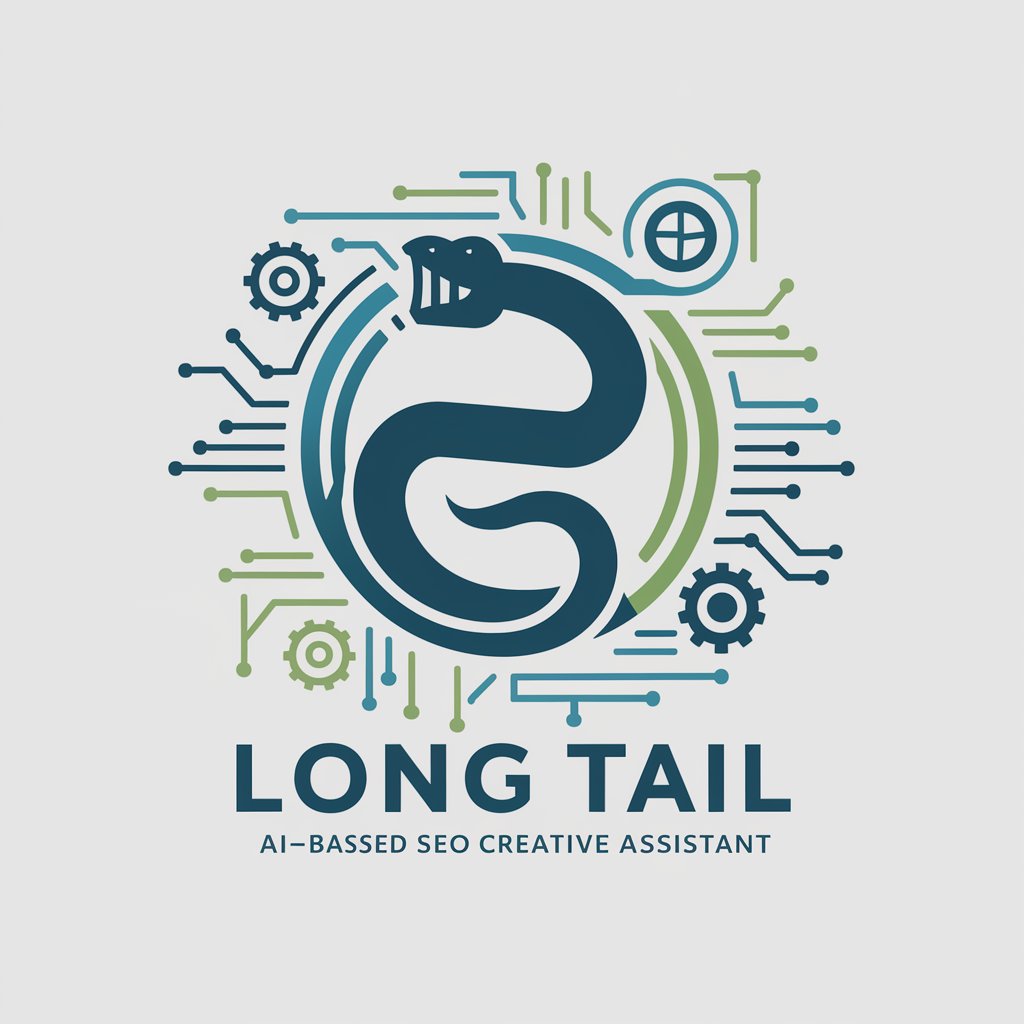Long Tail Keywords Planner - AI-powered keyword discovery

Welcome to your SEO keyword strategy hub!
Uncover Niche Keywords with AI
Generate long-tail keywords for
Identify the search intent for
Create engaging blog post titles for
Write compelling meta descriptions for
Get Embed Code
Overview of Long Tail Keywords Planner
The Long Tail Keywords Planner is designed as a specialized tool for identifying and leveraging long-tail keywords within SEO strategies. Its core purpose is to help users create more targeted, specific, and relevant content strategies that resonate with a niche audience. Unlike broad or short-tail keywords, long-tail keywords are more specific, often consisting of three or more words. They are crucial for targeting particular search queries and improving the chances of ranking higher on search engine results pages (SERPs). For example, instead of targeting the highly competitive keyword 'running shoes,' the planner might suggest a long-tail keyword like 'women's trail running shoes for overpronators,' which targets a specific audience with precise intent. This approach not only enhances visibility among targeted searchers but also increases the likelihood of conversion. Powered by ChatGPT-4o。

Key Functions and Applications
Long-Tail Keyword Generation
Example
women's trail running shoes for overpronators
Scenario
An e-commerce site specializing in athletic footwear wants to increase its organic traffic and conversion rates. The planner generates specific long-tail keywords related to their niche products, helping them create content that attracts buyers looking for very specific types of running shoes.
Search Intent Classification
Example
buy lightweight camping gear for backpacking
Scenario
A camping gear retailer needs to identify the intent behind search queries to tailor their content accordingly. The planner classifies this keyword as 'transactional,' indicating that the searcher intends to purchase. This insight helps in crafting content that guides the user towards making a purchase.
Blog Post Title Creation
Example
10 Essential Tips for Choosing the Perfect Trail Running Shoes for Women
Scenario
A blog focusing on outdoor sports wants to attract readers to their site. The planner suggests engaging titles for their long-tail keywords, encouraging clicks and shares, thus increasing traffic and engagement.
Meta Description Writing
Example
Discover the top women's trail running shoes designed for overpronators. Our guide offers insights to help you choose the perfect pair for comfort and performance.
Scenario
An online sports magazine updates its article on running shoes. The planner crafts compelling meta descriptions for each long-tail keyword-focused article, enhancing click-through rates from SERPs.
Who Benefits from Long Tail Keywords Planner?
SEO Professionals and Marketers
Individuals and teams focusing on SEO and digital marketing strategies can use the planner to refine their keyword research, target specific audiences, and enhance their content marketing efforts. The specificity and relevance of long-tail keywords make them invaluable for creating focused content that ranks well and converts.
E-commerce Site Owners
Owners of e-commerce platforms benefit significantly from using long-tail keywords to attract targeted traffic with high purchase intent. The planner helps them identify niche product-specific keywords, optimizing product descriptions and landing pages to boost sales and conversion rates.
Content Creators and Bloggers
Writers and bloggers looking to increase their visibility and reach on search engines can leverage the planner to find long-tail keywords. This tool aids in crafting titles and content that fulfill specific informational needs, attracting more engaged readers and improving overall site authority.

How to Use Long Tail Keywords Planner
1
Start by visiting yeschat.ai to access a free trial, no ChatGPT Plus or login required.
2
Enter your primary keyword into the designated search box to generate a list of long-tail keyword suggestions.
3
Review the suggested keywords, focusing on those that best match your content creation goals and target audience.
4
Utilize the tool's features to classify the search intent behind each long-tail keyword, whether it's informational, transactional, or commercial.
5
Leverage the keywords to plan and create content, ensuring to include them in titles, headings, and throughout the body for SEO optimization.
Try other advanced and practical GPTs
Skyrocket SEO : Long-Tail Magic Keyword Table!
Unleash your SEO potential with AI-powered keyword insights.

Long-Tail AI
Uncover Your Niche with AI

Sketch Tail Waggers
Turn Your Pet into a Cartoon Star

Technology Mastermind
Empowering tech innovation with AI

マイソクPDF / 自動文章化Bot
Transforming property data into engaging narratives

パワーポイント構成補助Bot
Elevate Your Slides with AI-Powered Structuring

Long Tail Keyword Generator
Unlock niche audiences with AI-powered keywords

long tail
Empowering content with AI-driven insights

SEO Writer - Long Tail Keywords
Empowering Content with AI

Marketer Plus
Empower your marketing with AI

Travel Plus
Discover the Undiscovered

iLog Plus
Streamline Inventory with AI Precision

Long Tail Keywords Planner Q&A
What are long-tail keywords?
Long-tail keywords are more specific and usually longer than more commonly searched keywords. They tend to have a lower search volume but can lead to higher conversion rates due to their specificity.
How can Long Tail Keywords Planner help in SEO?
The planner helps by identifying niche-specific, long-tail keywords that are less competitive but highly targeted, making it easier to rank higher in search engine results and attract a more focused audience.
Can this tool suggest keywords for any industry?
Yes, Long Tail Keywords Planner is versatile and can generate relevant long-tail keyword suggestions for a wide range of industries by analyzing current trends and search data.
Does the tool provide keyword metrics?
While the planner specializes in generating keyword suggestions, it integrates with other tools and resources that offer metrics like search volume and competition level, helping users make informed decisions.
How often should I use this tool for content planning?
Regular use is recommended, especially when planning new content or updating existing material. Market trends and search patterns change, so staying updated with fresh keywords can maintain or improve SEO rankings.
